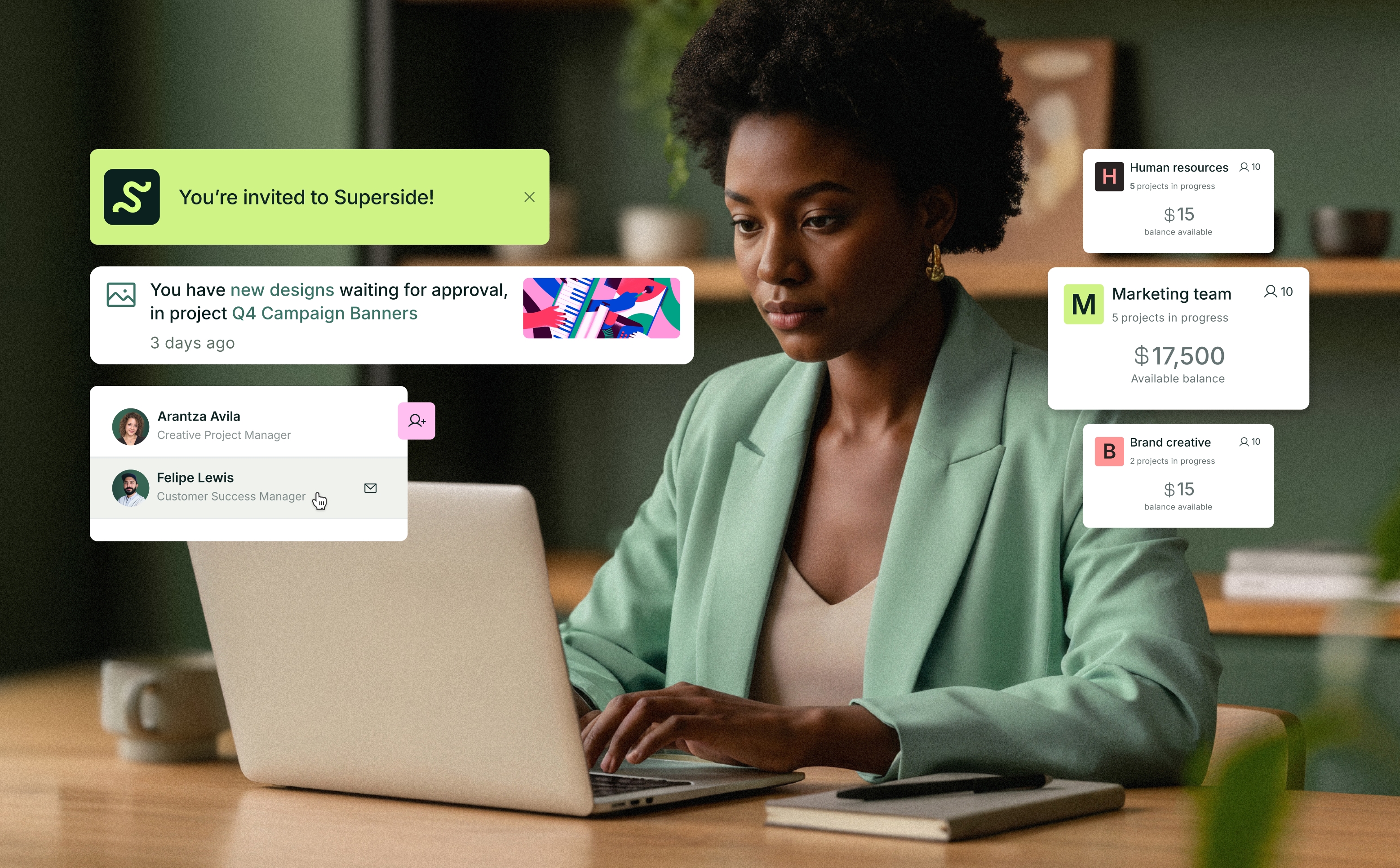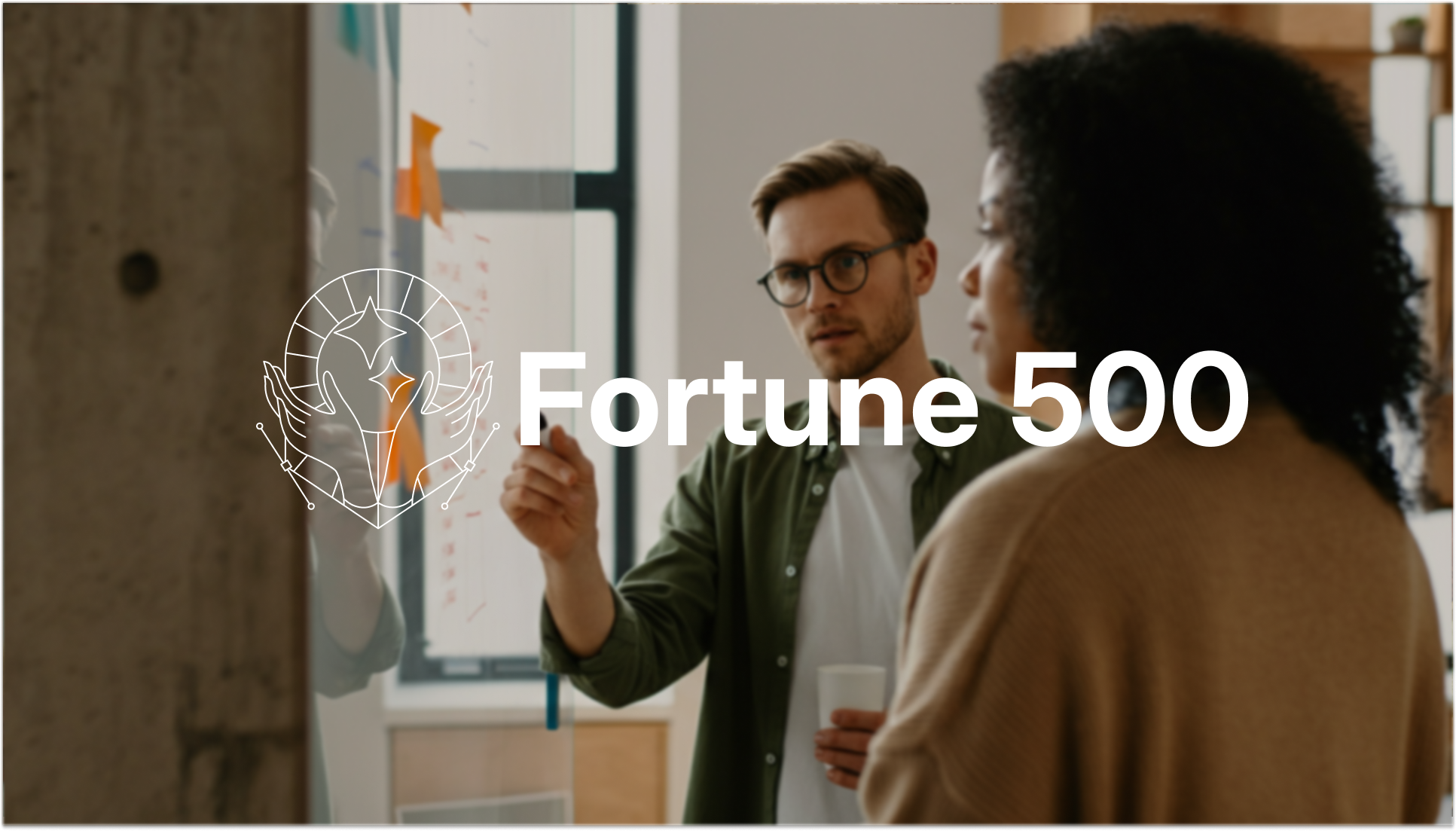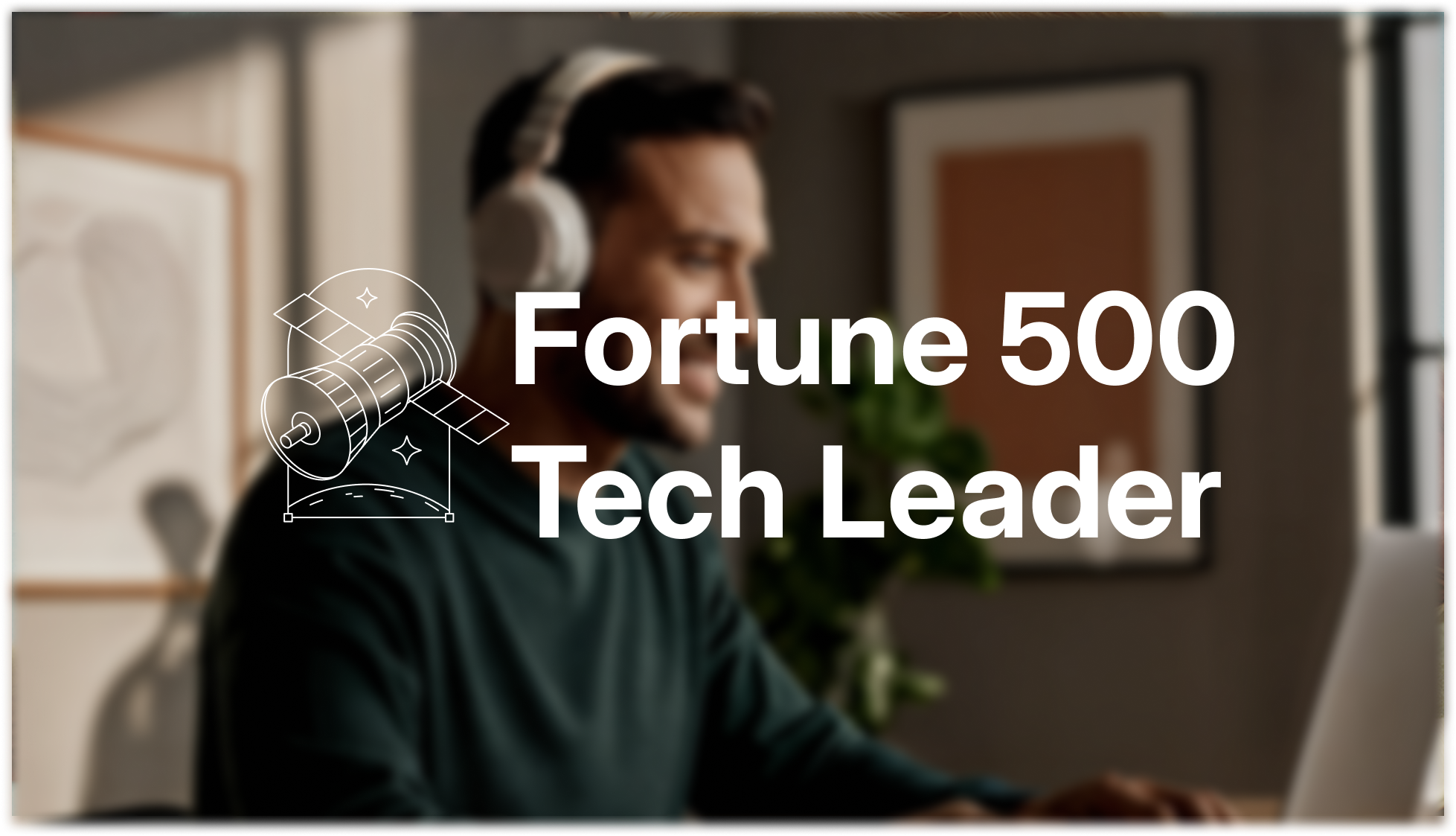
Creating ads that connect with your audience is hard. It doesn’t matter if you're new to the world of advertising or you’ve got 20 years of experience under your belt. Finding a way to stand out from the crowd takes skill. Thankfully, the creative and marketing industry is full of leaders who love to share advertising tips and tricks to help others grow their creative and marketing skillsets.
Here’s our top 9 advertising tips from industry experts at Snap, Webflow, Slack and more.
Advertising Tip 1: Make Your Audience Smile
“When I build a brand, I want to delight people and evoke emotion. Yes, you have your funnel metrics—leads, MQLs, pipeline—but you can’t forget about brand metrics: unaided recall, aided recall, sentiment, share of voice. My shortcut for gauging the potential success of a video at Slack was shockingly simple: show someone the video, see if they smiled, and if they laughed a little I knew I was on to something.”
– Bill Macaitis, Growth Advisor & Board Member, previous CMO & CRO at Slack
Why this matters: The great ads of all time have one thing in common–they made an emotional connection with their audience. The Budweiser Clydesdale ads formed a deep emotional connection between the horses and beer-loving consumers. Statefarm Insurance managed to keep a surprise guest a secret in a recent Super Bowl spot that generated conversations across social media.
You can read Macaitis' full ad design interview here.
Advertising Tip 2: Consider the Market You’re Advertising in
“You are not competing for eyeballs just within your industry. Your customer is seeing ads from Nike and Casper and The North Face and Whole Foods … and those ads may be at a different standard than yours. To be effective, your ads need to live up to what your target audience sees every day––meaning you need to understand what each audience segment is comparing you against in terms of ad creative”
– Zontee Hou, Head of Strategy at Convince & Convert
Why this matters: You’re not just designing copy or visuals to attract attention from your competitors' content, your ads are competing with what Nike and other top tier brands are putting out there. With social media and digital advertising, you’re competing with thousands of brands for attention. According to a report from Locowise, 80% of users follow at least one business on Instagram, while more than 200 million people visit at least one business profile every day.
We talked with Hou all about how Convince & Convert builds digital ad strategies in this post.
Advertising Tip 3: Always Strive for Design Consistency
“I think the measure of a successful ad is how it contributes to a full-funnel experience. Let’s say you saw a billboard for a product, then later you’re hit with an ad on Instagram for that same product. You remember the billboard, but now you’ve gone one layer deeper with the campaign–maybe in this layer, they tell you about a new feature the billboard only teased at. Cohesive design and originality lead to brand recall, which can lead to fulfilled business objectives.”
– Jennifer Chan, Designer at Capital One
What this matters: Presenting a brand consistently across your funnel can increase revenue by up to 23%. We love the analogy to throwing pebbles into a pond. One creates a ripple, throwing more in–creating more touch points–extends the ripple and makes a bigger impact. Check out this example of an awesome multichannel marketing from MailChimp.
Advertising Tip 4: Follow Your Audience’s Attention to New Tech
“At Snap, we’ve seen campaigns be successful due to the use of new technology. Game of Thrones, for example, used landmarker technology to develop a lens that mapped a dragon to the top of New York’s Flatiron Building. It was a great example of a successful campaign that marries a cool concept with new technology.”
– Cameron Frantz, Design Manager at Snap Inc.
Why it matters: TV, radio, and print dominated both audience attention and ad budgets for 50 years. In the last 10 years alone we’ve seen Facebook, Instagram, SnapChat, TikTok, and more fight it out for swipes and double taps. Embracing emerging platforms means experimenting with your ad budget. If your audience is 12-18 year olds, then you better be on TikTok, implementing TikTok hacks to engage with them. Leveraging new technology to connect with audiences is now the norm, so grab your VR headset and get creating.
Source: Variety
Advertising Tip 5: Show, Don’t Tell
“YouTube as a channel is about showing people how to accomplish a task to make their lives easier. On YouTube, you need to overwhelm people with visuals of all the amazing things your product can do.”
– Bruno Estrella, Growth Marketing Manager, Webflow
Why it matters: Video gives you the advantage of sound and visuals. The majority of video views are done with the sound muted, so make your visuals tell your story as well as your copy. While influencer culture can catch some negative flack, one thing it has shown is how important showing how a product works is to consumers. Using TikTok, Instagram Reels, and YouTube to show your product in action is a great way to help turn a view into a purchase.
Advertising Tip 6: The Basics Still Apply in Digital
“Amazon advertising depends on a solid communication hierarchy. When I was at Amazon, we introduced the three As: attraction, amplification, and action. It’s not a new idea, but it takes a classic retail tactic and translates it for a digital world.”
– Michael Kazantzis, Principal, KANE
Why it matters: There’s a reason we all still study the great ad campaigns of the 20th century. Advertising is storytelling–connecting with an audience, getting that message out to as many people in your audience as possible, and driving them towards an action. In a recent Fast Company report, 92% of consumers want ads to be like stories.
Advertising Tip 7: Design for the Channel
“I never use a white background for ads anymore. White backgrounds blend too well in Facebook’s feed, and this isn’t what we want for our creative. Assets should stand out amongst all the feed noise.”
– Ben Hazan, Senior UX Designer, Outbrain
Why this matters: In the 1970s, the average consumer saw 500 ads per day. Today, they’re more likely to see over 5,000 ads on a given day. Standing out takes work - especially when your campaigns run on everything from podcasts (MailKimp? MailChimp?) to a website to a social media feed. Make the best use of your brand colors to stand out against the backdrop so your ad can connect with your audience.
Tip 8: Great Ad Copy Will Always Prevail
“Great copy that gets attention demonstrates a clear value prop and keeps it simple—no one wants to read a wall of copy in a banner ad. Avoid all caps and don't use thin or cursive fonts. The copy will get lost otherwise!”
– Ben Myhre, Global Creative Director, Superside
Why this matters: There are two things here to focus on. Great copy should not only tell the viewer what your business does and why they should care, but it needs to do it in simple, concise language. Sometimes that copy can be as simple as one word.
Here’s an example from Doritos where they used imagery and a single hashtag in poster ads.
Source: MSNBC
Tip 9: Wise Words from One of the Great Ones
“I am one who believes that one of the greatest dangers of advertising is not that of misleading people, but that of boring them to death."
– Leo Burnett, Founder, Leo Burnett Worldwide Inc.
Why this matters: Repetition and reach leads to action, but you can just as easily bore your audience and lose them to a competitor or another brand’s campaign. When Bill Macaitis talked about emotional connection, it reminded us of the saying ‘variety is the spice of life’. Surprise and delight your audience to keep them engaged and interested in your product. That being said, sometimes something really boring can capture an audience’s attention. IKEA took a bold risk with their “incredibly boring, long” ad campaign and it paid off. They succeed through cleverness and the almost film-like quality production values.
…and Now for a Message from Our Sponsors
The three key messages we hope you take away from this are:
- Know where your ads are being shown. Every channel–from traditional to digital–has its own unique features that you can use to both stand out from competitors and connect with your audience.
- Consistency is key. You spent time and money on your brand guide. Make sure your look and feel and your message is consistent across your marketing materials and ad campaigns.
- Be unique. Don’t put your audience to sleep with stale content. And better yet, if you can customize and target your ads per location, you’re bound to capture more eyes.
Looking for some fresh ideas for your digital ads in 2021? We’ve just released a Definitive Guide to Digital Ad Design that's chock-full of advertising tips and more. Check it out today.












